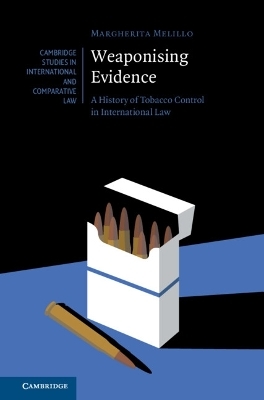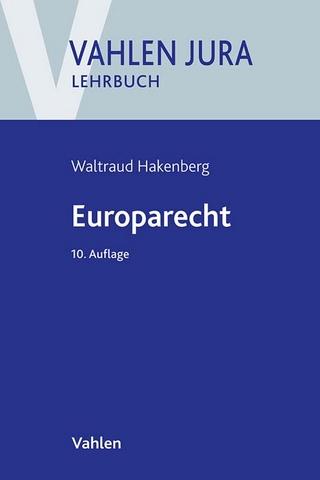
Weaponising Evidence
A History of Tobacco Control in International Law
Seiten
2024
Cambridge University Press (Verlag)
978-1-009-35435-6 (ISBN)
Cambridge University Press (Verlag)
978-1-009-35435-6 (ISBN)
This book analyses the history of the international law on tobacco control. It offers important reflections on the use of evidence, as well as on the role of industry and civil society. It will appeal to readers interested in global health, international environmental negotiations, or trade and investment litigation.
Weaponising Evidence provides the first analysis of the history of the international law on tobacco control. By relying on a vast set of empirical sources, it analyses the negotiation of the WHO Framework Convention on Tobacco Control (FCTC) and the tobacco control disputes lodged before the WTO and international investment tribunals (Philip Morris v Uruguay and Australia – Plain Packaging). The investigation focuses on two main threads: the instrumental use of international law in the warlike confrontation between the tobacco control advocates and the tobacco industry, and the use of evidence as a weapon in the conflict. The book unveils important lessons on the functioning of international organizations, the role of corporate actors and civil society organizations, and the importance and limits of science in law-making and litigation.
Weaponising Evidence provides the first analysis of the history of the international law on tobacco control. By relying on a vast set of empirical sources, it analyses the negotiation of the WHO Framework Convention on Tobacco Control (FCTC) and the tobacco control disputes lodged before the WTO and international investment tribunals (Philip Morris v Uruguay and Australia – Plain Packaging). The investigation focuses on two main threads: the instrumental use of international law in the warlike confrontation between the tobacco control advocates and the tobacco industry, and the use of evidence as a weapon in the conflict. The book unveils important lessons on the functioning of international organizations, the role of corporate actors and civil society organizations, and the importance and limits of science in law-making and litigation.
Margherita Melillo is an Associate at the O'Neill Institute for National and Global Health Law of Georgetown University, where she works on research, training and advocacy for non-communicable diseases policies.
1. Introduction: Lawfare and evidence in the International Law on Tobacco control; 2. The negotiation of the WHO framework convention on Tobacco control: building an evidence-based treaty; 3. The activities of the FCTC conference of the parties: advancing an evidence-based regime; 4. Philip Morris v Uruguay (ICSID) and Australia – Plain packaging (WTO): strategic evidentiary challenges against tobacco control measures; 5. Conclusions: lessons learnt on Lawfare and evidence; Index.
| Erscheinungsdatum | 13.12.2022 |
|---|---|
| Reihe/Serie | Cambridge Studies in International and Comparative Law |
| Zusatzinfo | Worked examples or Exercises |
| Verlagsort | Cambridge |
| Sprache | englisch |
| Gewicht | 636 g |
| Themenwelt | Recht / Steuern ► EU / Internationales Recht |
| Recht / Steuern ► Steuern / Steuerrecht | |
| ISBN-10 | 1-009-35435-3 / 1009354353 |
| ISBN-13 | 978-1-009-35435-6 / 9781009354356 |
| Zustand | Neuware |
| Informationen gemäß Produktsicherheitsverordnung (GPSR) | |
| Haben Sie eine Frage zum Produkt? |
Mehr entdecken
aus dem Bereich
aus dem Bereich
Vertrag über die Europäische Union, Vertrag über die Arbeitsweise der …
Buch | Softcover (2024)
dtv Verlagsgesellschaft
CHF 22,25


